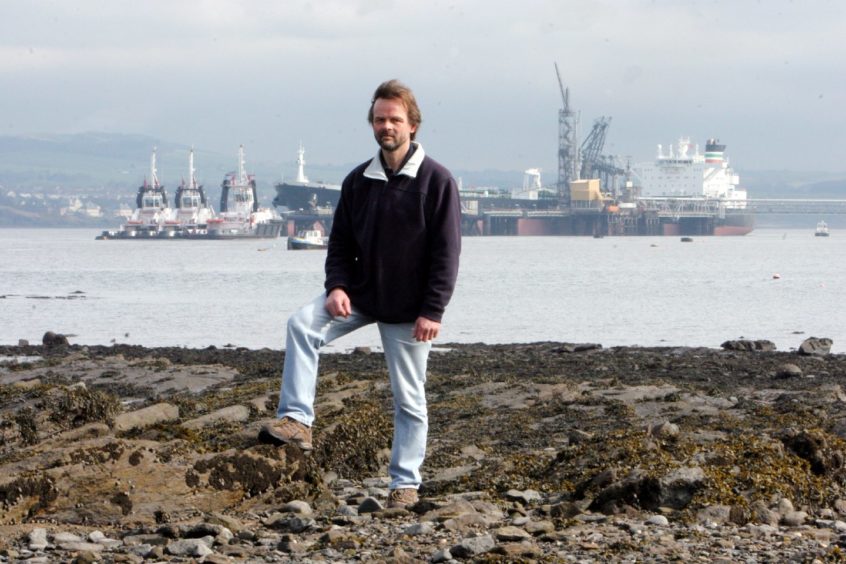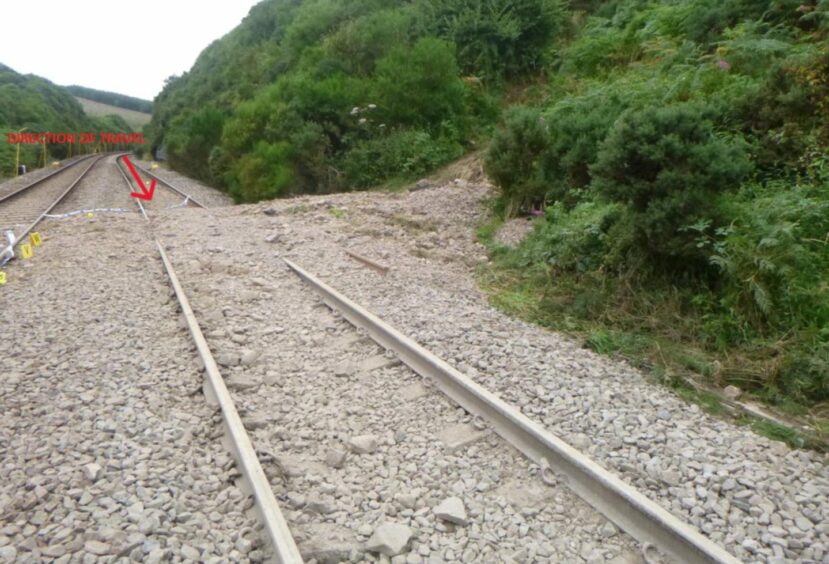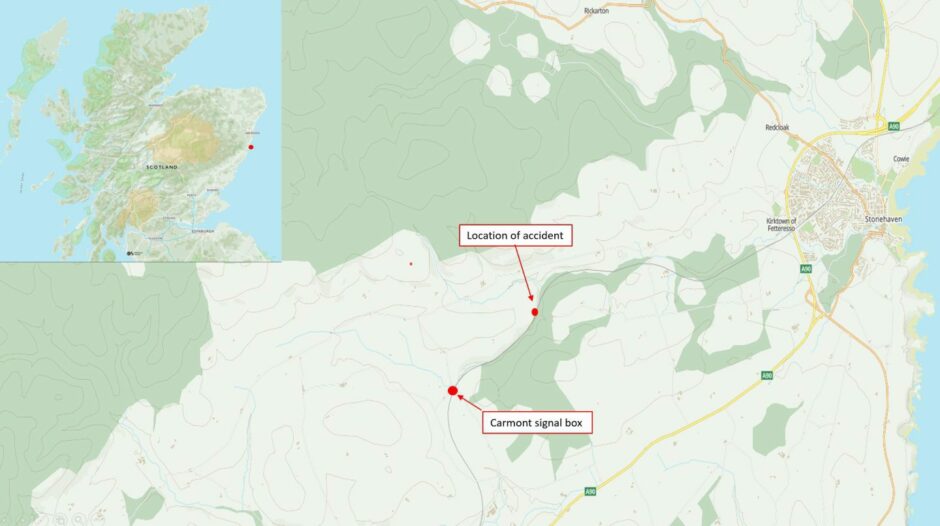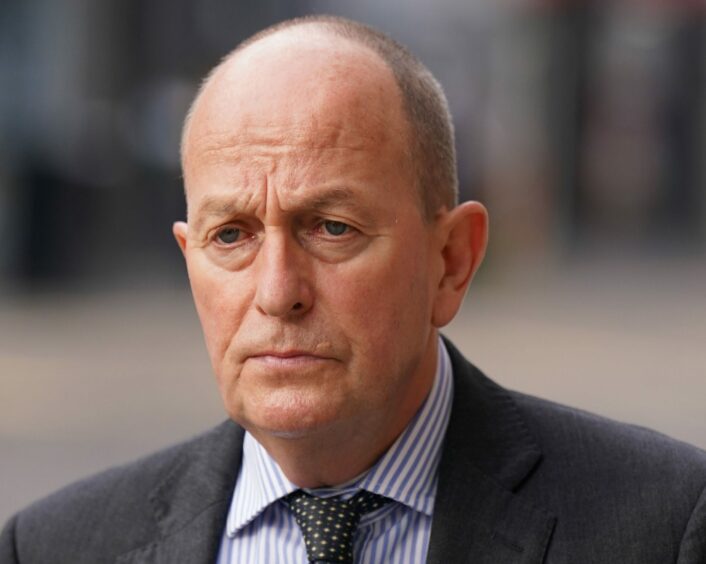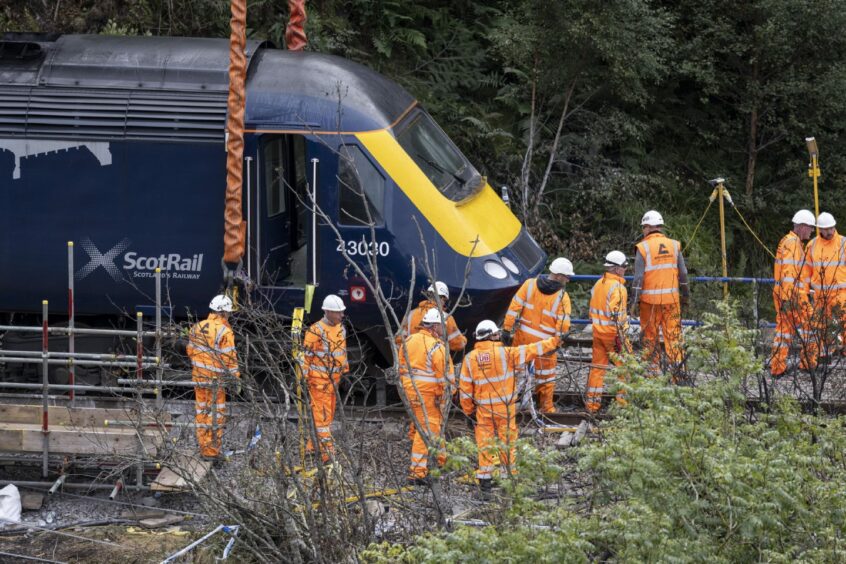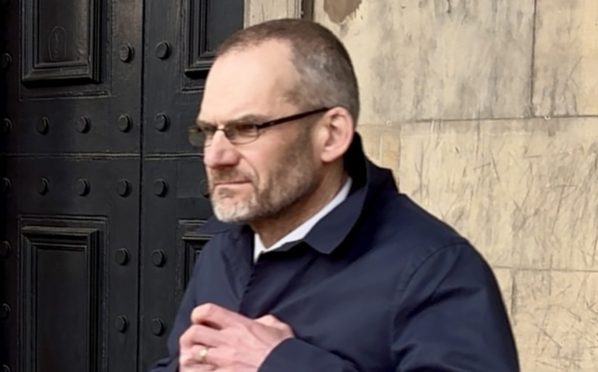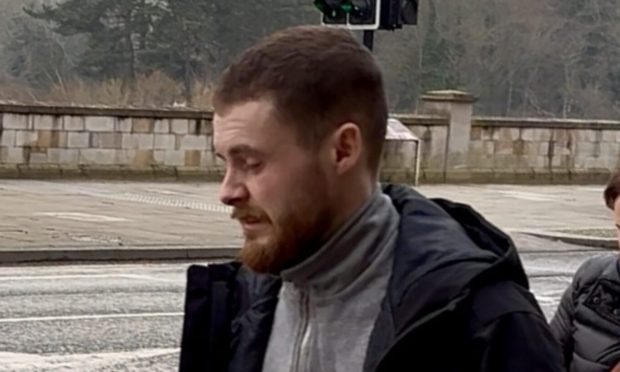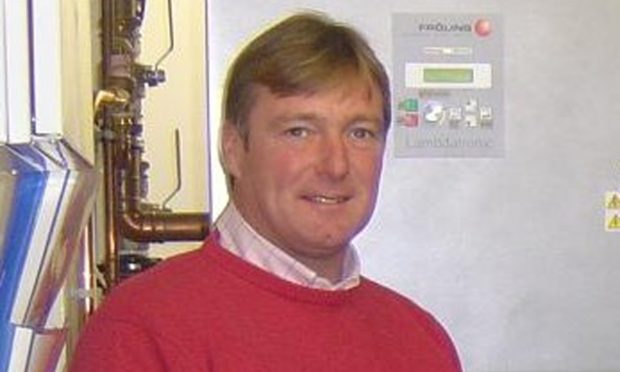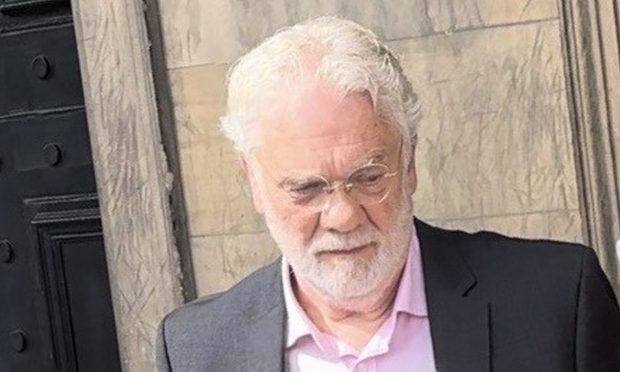Network Rail has been fined £6.7 million over failings that caused the Stonehaven rail tragedy.
Three people died and six others were injured in the August 2020 crash, which happened when the 6.54am train from Stonehaven struck a landslide on the track at Carmont.
At the High Court in Aberdeen on Thursday, the rail body admitted failing to conduct itself in a way that would prevent the risk of serious injury and death.
The court case follows two lengthy probes into the circumstances surrounding the tragedy, which killed the train’s driver Brett McCullough, conductor Donald Dinnie and passenger Christopher Stuchbury, who was travelling to Fife for work.
Returning to court on Friday for sentencing, judge Lord Matthews said: “Three people died and their families were left without loved ones.
“The traumatic events also caused the survivors to suffer physically, psychologically and financially.
“No punishment I could give can lessen their suffering – particularly when they know the crash could have been avoided.”
He said “opportunities to take appropriate action were missed” but “Network Rail has made considerable efforts since the tragedy to ensure it could never happen again”.
The judge said he was “quite satisfied that culpability is high” but the weather conditions were “unprecedented”.
He added: “Since the accused is a company, the only disposal left open to me is a fine.”
The fine was reduced from £10 million due to the guilty plea.
Catalogue of failings
At the start of the hearing this week, Network Rail admitted a catalogue of failures in the run-up to the tragedy.
The company built a drain at the crash scene upside down and did not check it was constructed properly.
Staff did not know it existed because it failed to create a computer record.
The drain was overwhelmed in the day’s storm and stones washed onto the track, causing the derailment.
Network Rail bosses also failed to train staff how to use weather forecasting software.
‘Deepest and most profound sympathies’
On Friday, Network Rail’s defence counsel Peter Gray offered condolences to the six survivors and the families of the three people who died in the crash.
He said: “It is difficult to comprehend the sense of grief and loss that must have been felt at the time and I am sure continues to be felt, by all of those who lost loved ones.”
He added Network Rail wished to extend “its deepest and most profound sympathies” to the families of those who died and “its deepest and most heartfelt regrets” to those who were injured in the crash.
Describing the events of the derailment as an “extreme event”, Mr Gray stated the “challenges of climate change” and heavy rainfall had played a significant role, alongside failings “which the company must – and does – accept”.
He said: “These admitted failings and the consequences that followed… were in no way deliberate, nor has such a suggestion ever been made… and is likely to have arisen by a genuine oversight by the company.
“I would invite my Lord to accept that the remorse felt by Network Rail could not be greater or more genuine.”
Network Rail said it is determined to build upon the “significant changes” it has made since the incident, which have “helped us to manage the risk of severe weather to the network”, and it has invested millions to improve the resilience of the railway.
Victims of the tragedy gave the court moving accounts of their ordeals on the first day of the hearing this week.
Future work
Debbie Carroll, who leads on health and safety investigations for the Crown Office and Prosecutor Fiscal Service confirmed a Fatal Accident Inquiry will now take place “to examine the full circumstances surrounding these tragic deaths, putting all relevant information into the public domain and help avoid such an incident happening again in the future.”
Network Rail Infrastructure Limited has been fined £6,700,000 at the High Court in Aberdeen today for health and safety failings which led to a train derailment in that resulted in the deaths of three men and injury to six passengers. https://t.co/yhSOgyRjLZ pic.twitter.com/MHMIrXZSgt
— COPFS (@COPFS) September 8, 2023
Ian Prosser, HM Chief Inspector of Railways, said: “Network Rail has made progress in implementing the safety recommendations that came from reviews of the failings that contributed to the accident.
“However, as highlighted in our 2023 annual ORR health and safety report, there remains much work to do as we all contend with the effects of climate change on our network.
“We must never forget what happened three years ago and we require the industry to be unrelenting in its work to maintain Britain’s railways as one of the safest in Europe.”
For more local court content visit our dedicated page, or join us on Facebook.

